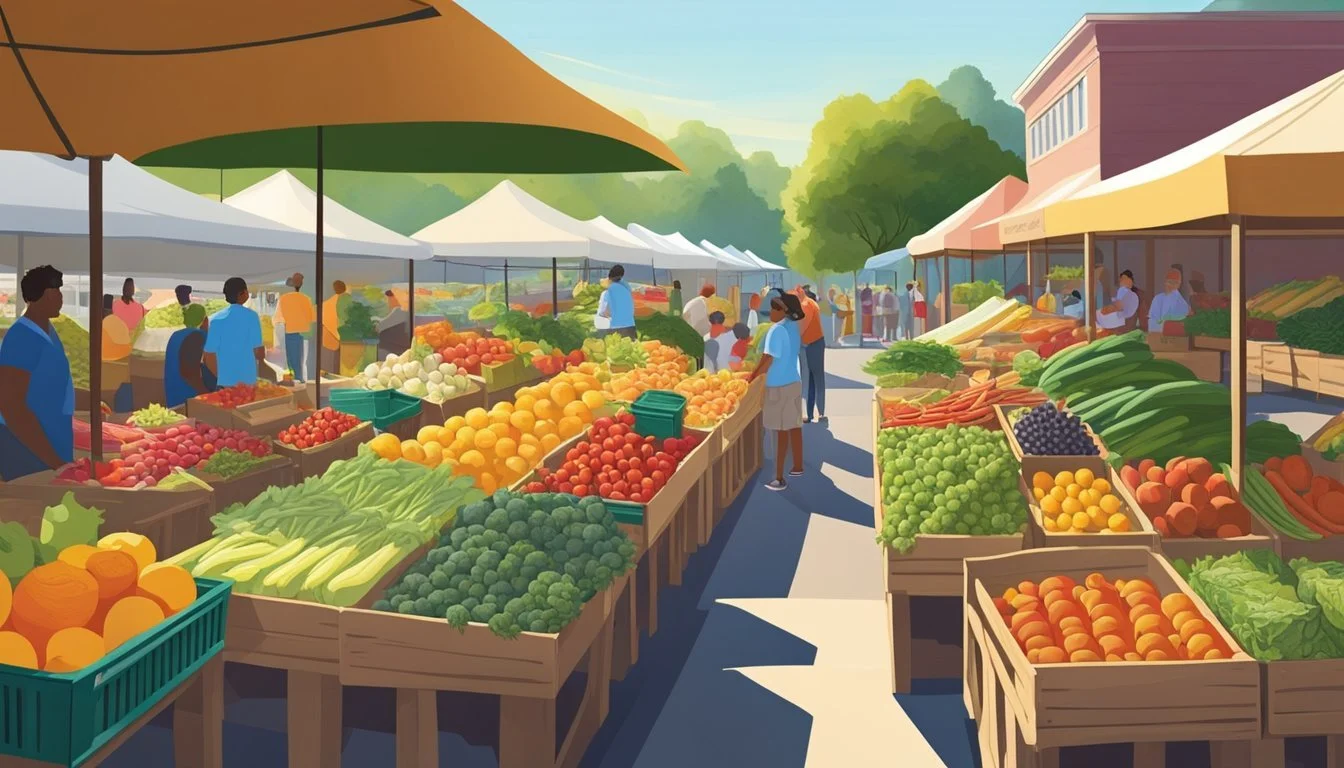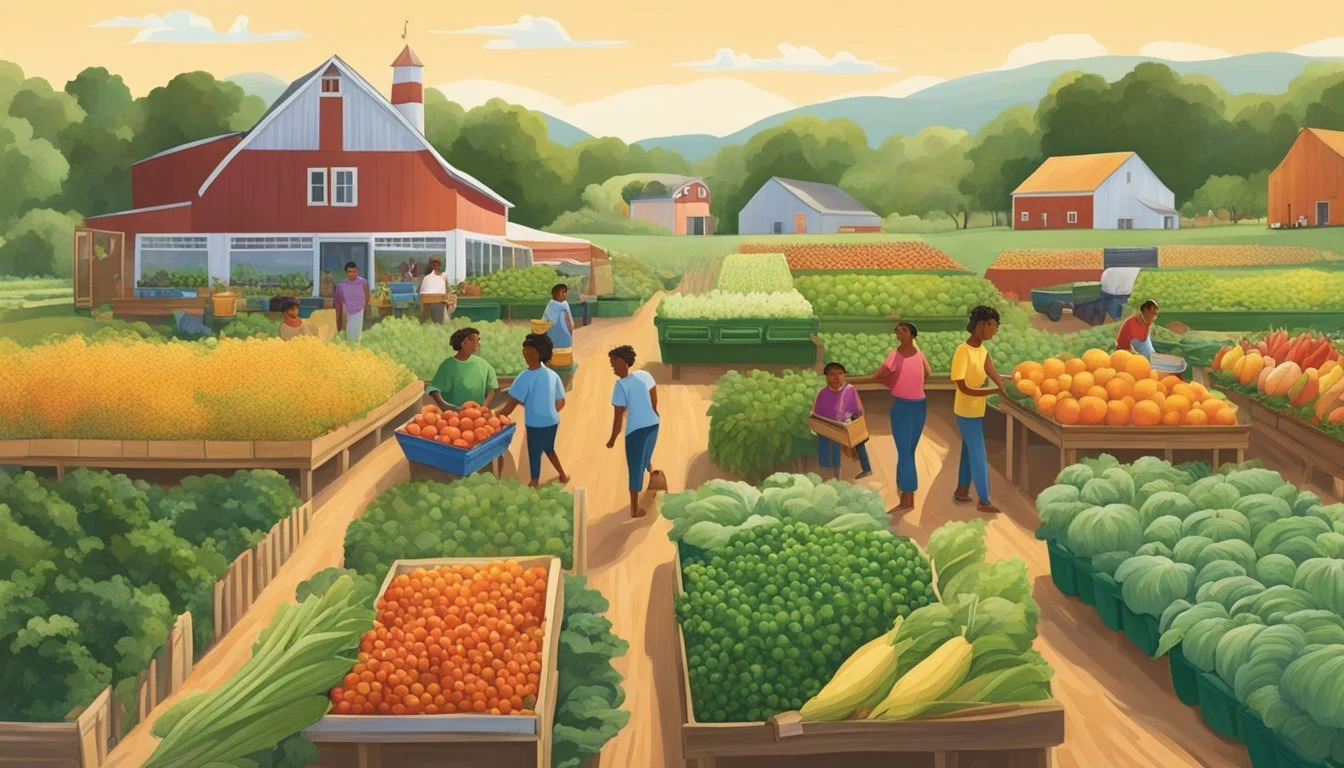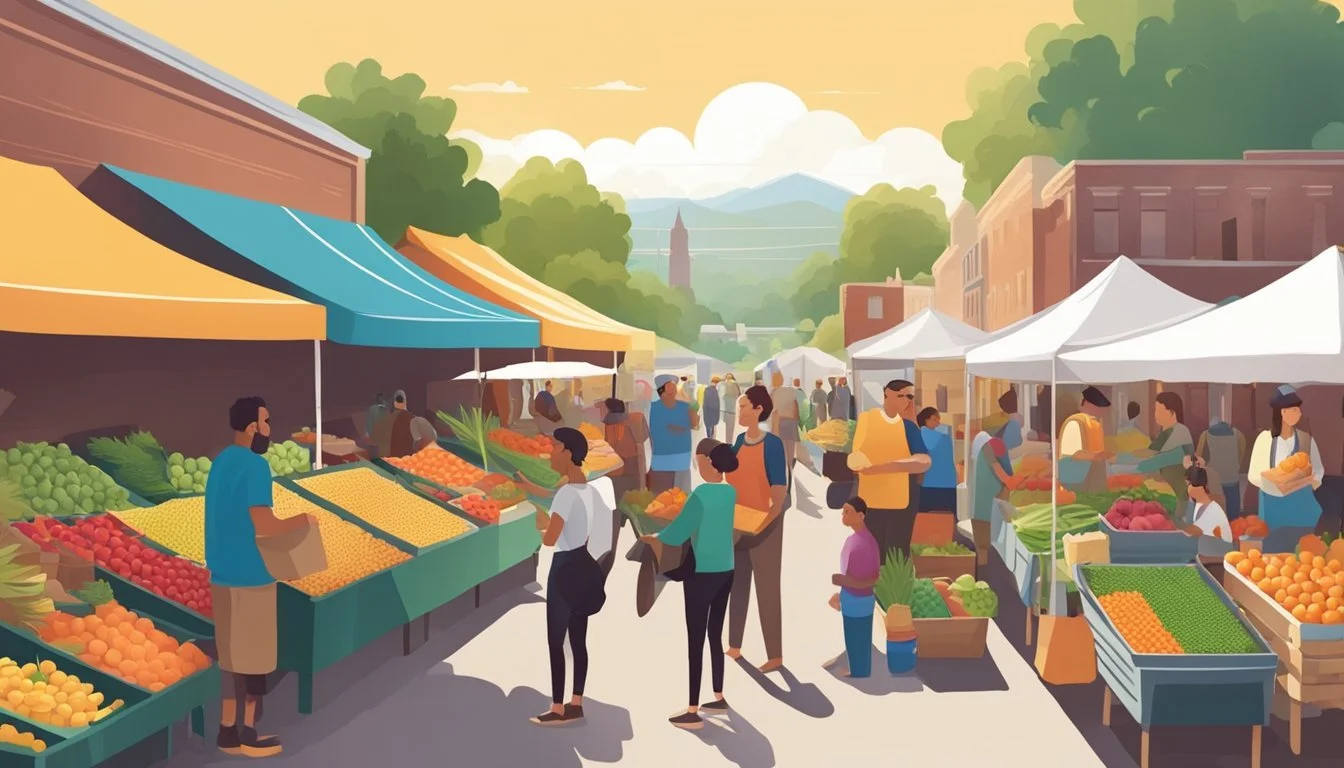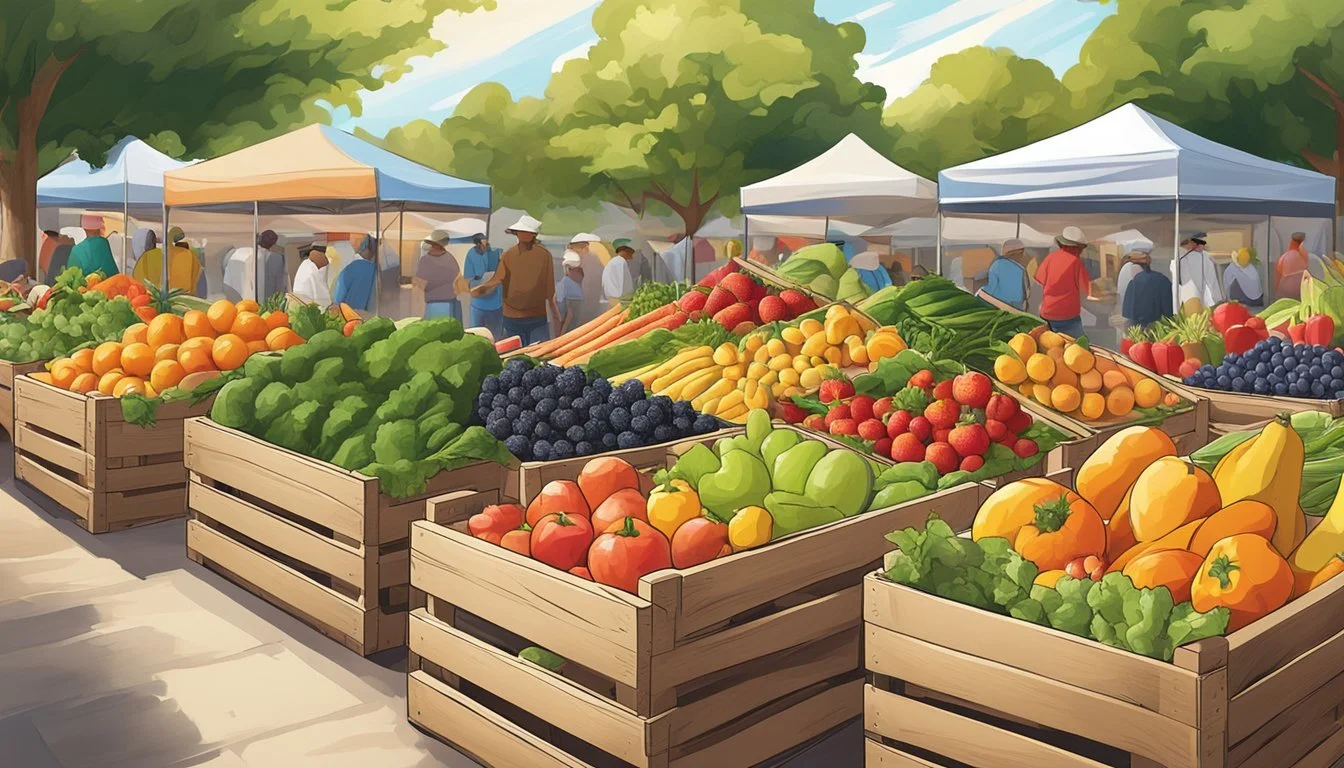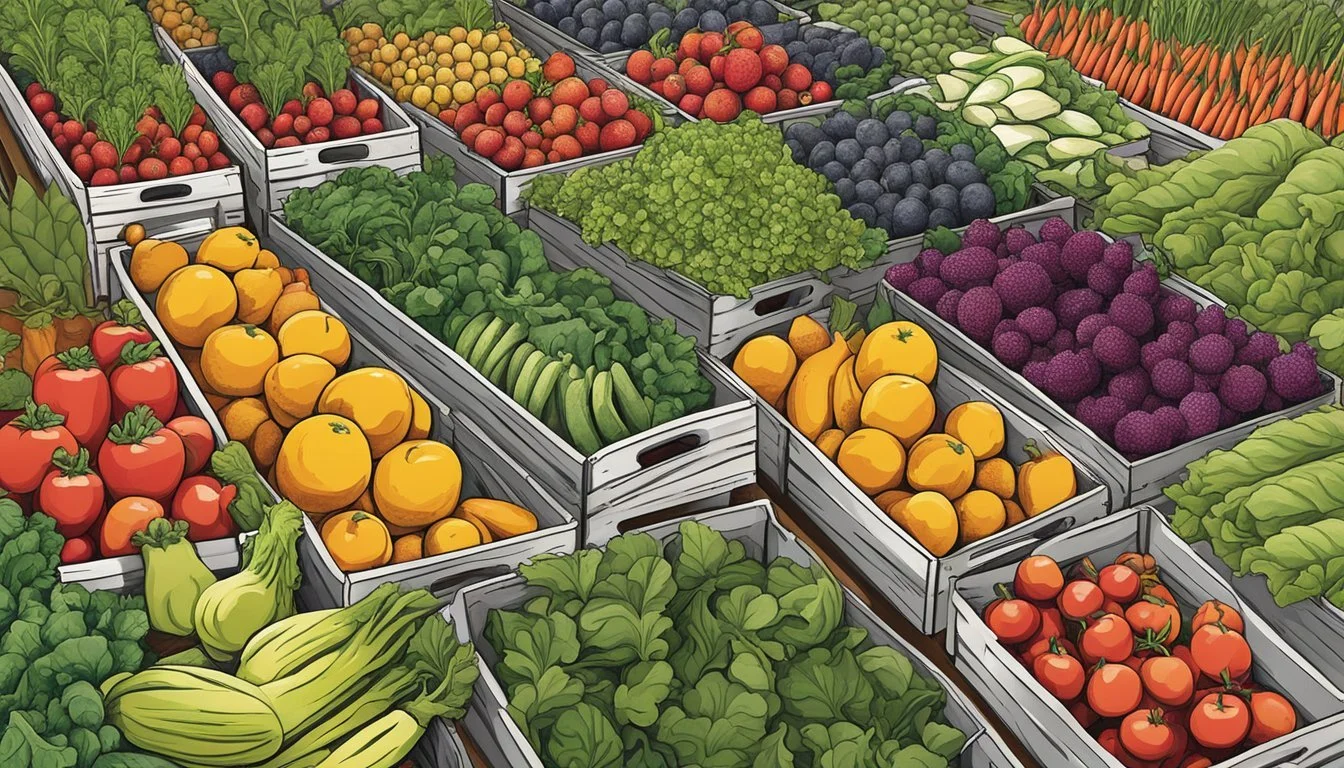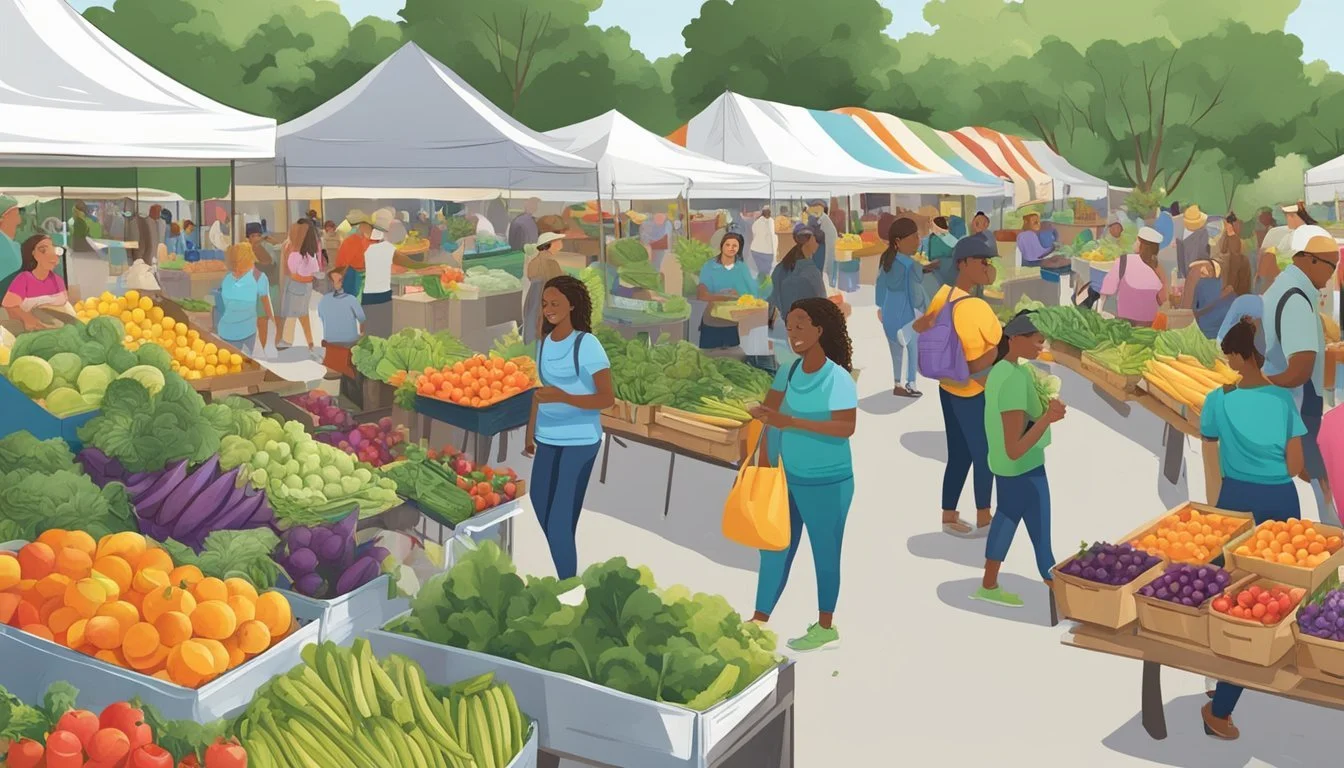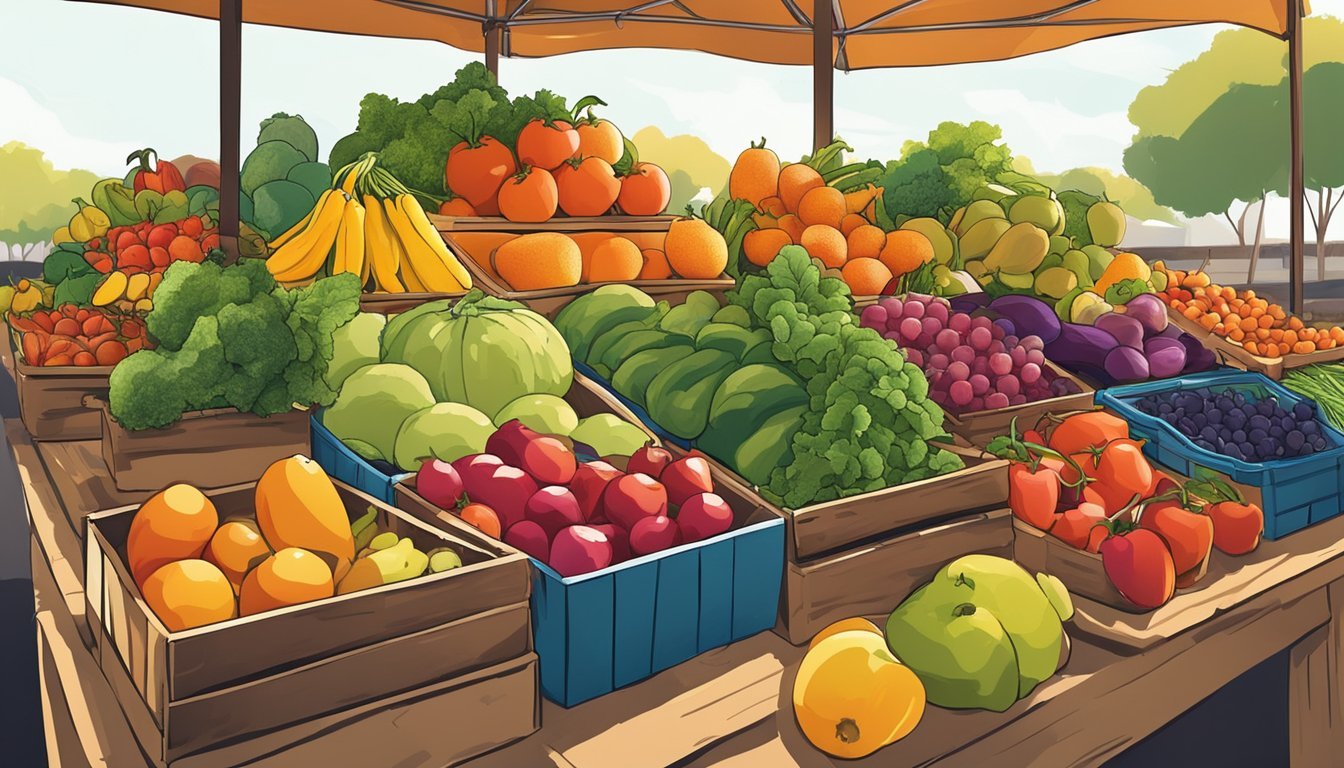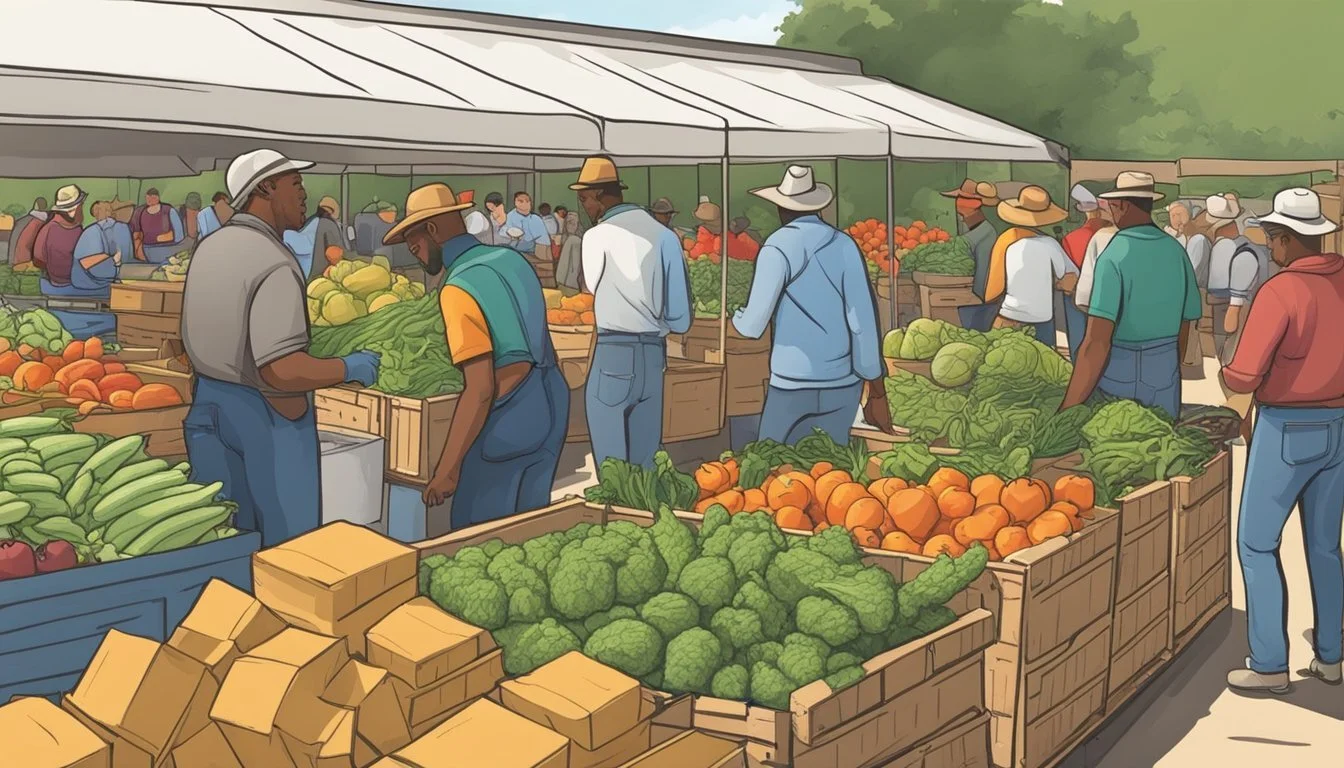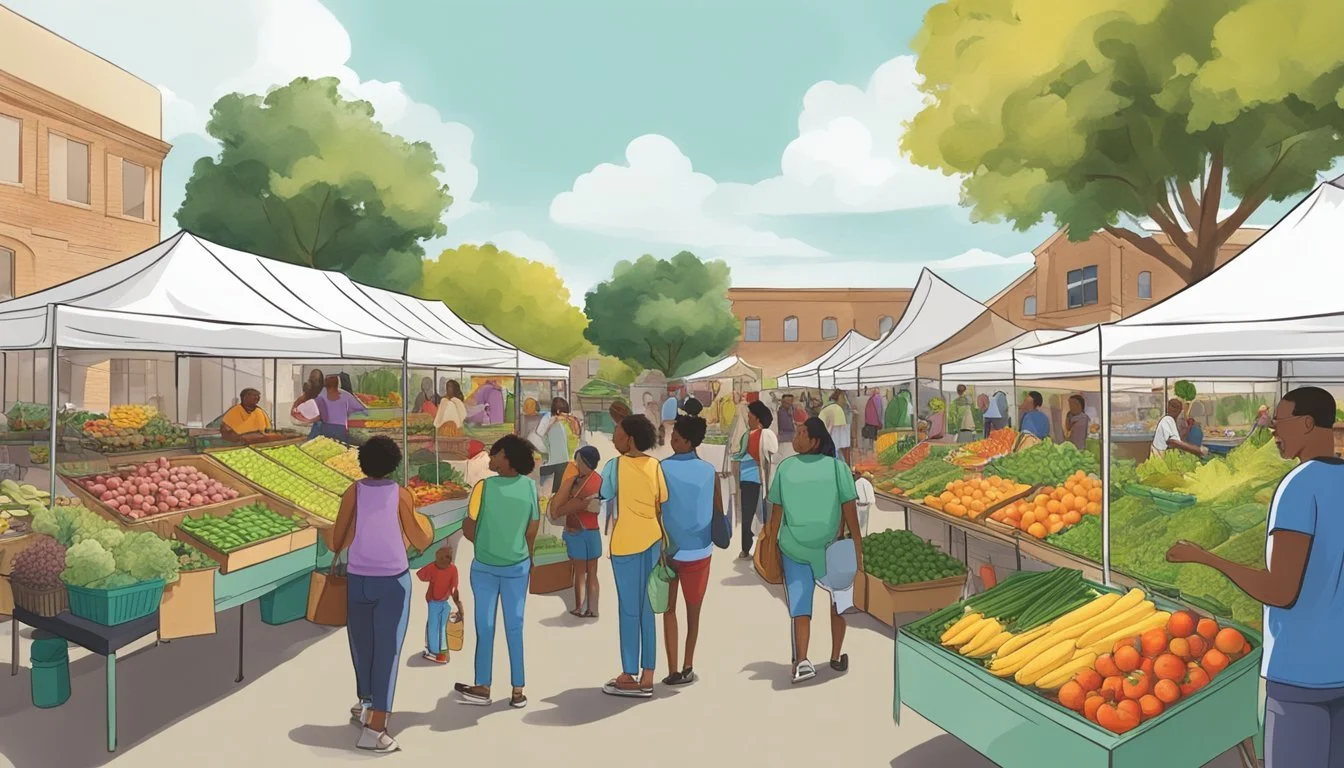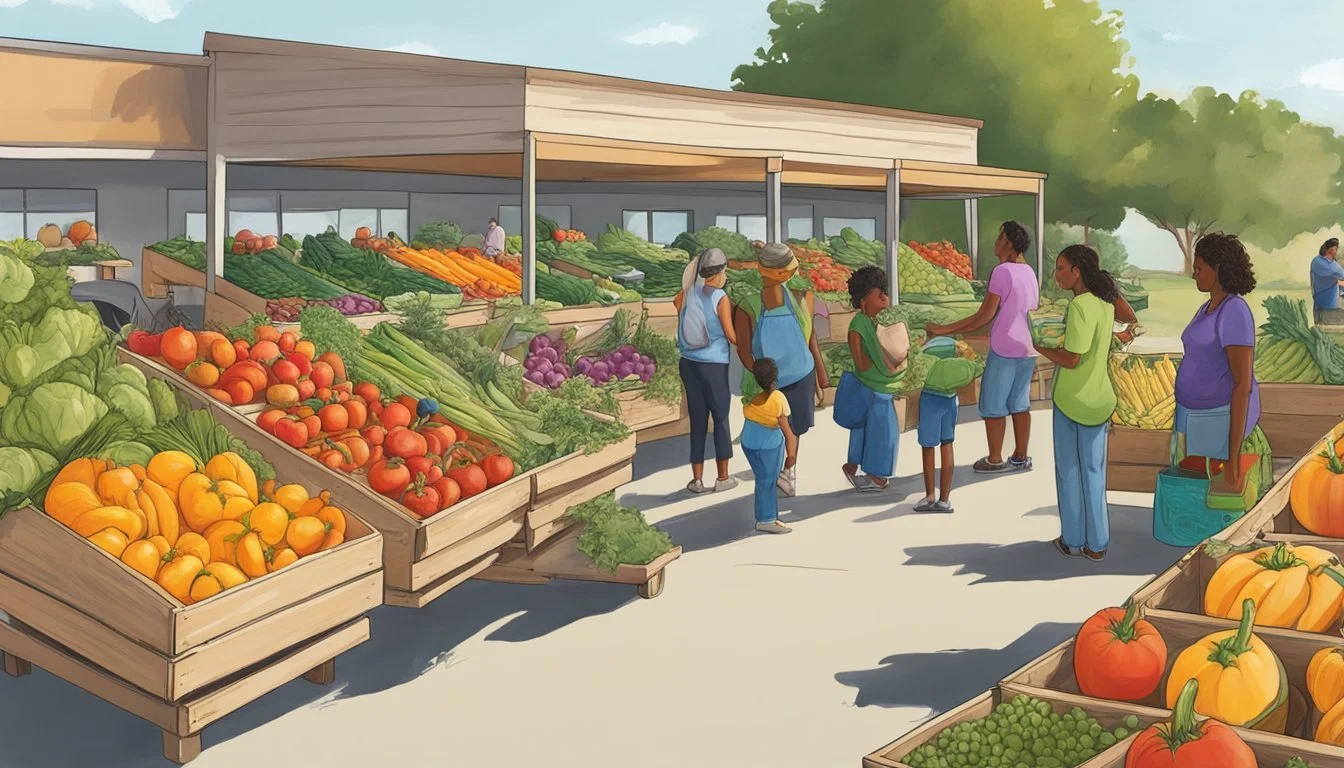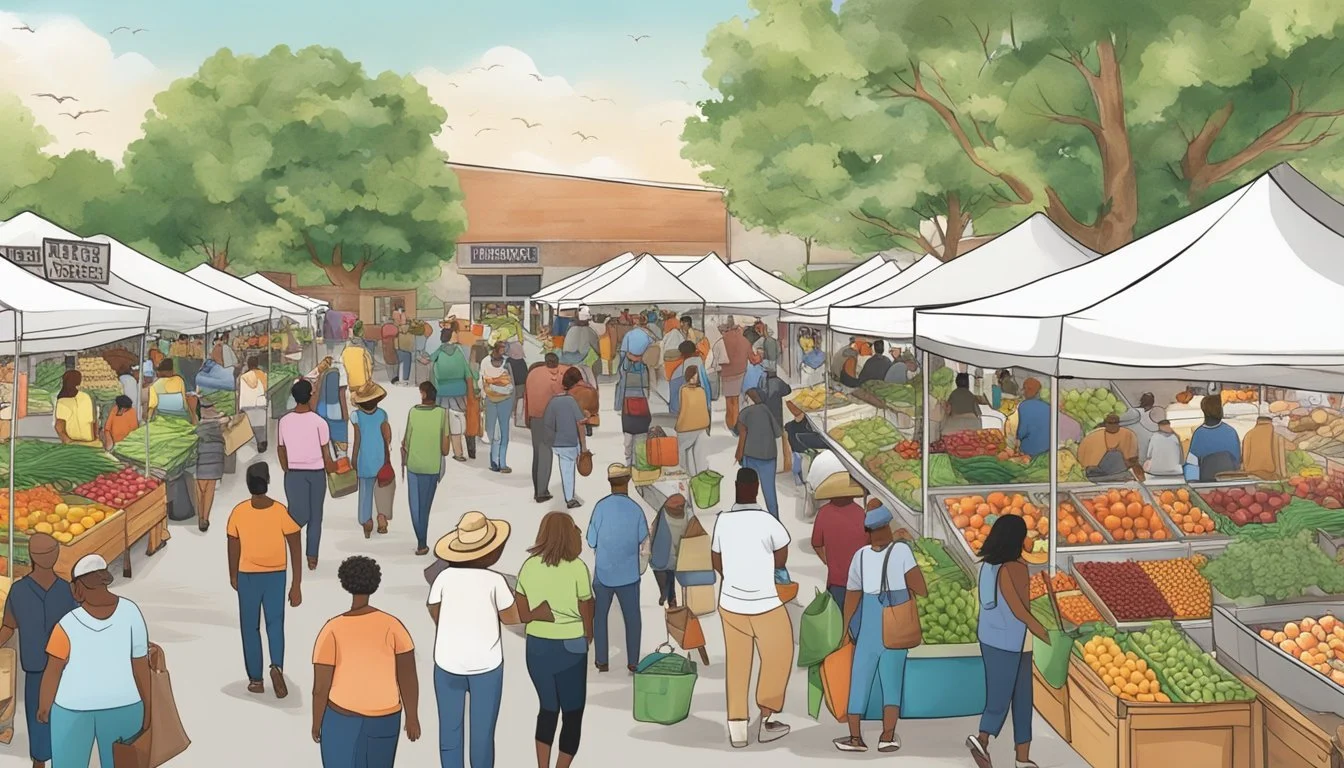Community Supported Agriculture (CSA) in Killeen, TX
Your Guide to Local Farm Shares
Community Supported Agriculture, or CSA, is a farming model that has taken root in Killeen, Texas, offering a symbiotic relationship between local farmers and community members. The essence of CSA lies in consumers purchasing shares of a farm's anticipated harvest, thereby sharing the risks and rewards of crop yields. This pre-emptive support is pivotal for farmers to plan and manage their crop production with greater financial security. As a result, participants reap the benefits of fresh, locally-grown produce throughout the farming season, directly from the source to their tables.
In Killeen and its environs, a network of family farms and ranches employ this CSA model, imparting robustness to the local food system. Residents have the opportunity to connect with these food producers through various CSA subscriptions and farm box schemes, thus strengthening the local economy and promoting sustainable agriculture. By ensuring that the freshest, in-season produce is readily available, CSAs in Killeen are bolstering the farm-to-table movement, echoing a national trend of increased awareness and preference for local food sources.
The CSA model transcends mere economic transactions, establishing a community-centric ethos where consumers are enlightened on the origin of their food, the challenges of agriculture, and the seasonality of produce. It fosters an intimate link between the grower and the consumer, fortifying understanding and appreciation for local agriculture. As this agricultural practice continues to flourish in Killeen, it embodies an effective vehicle for sustaining local farms while providing consumers with wholesome, locally-sourced food.
Understanding CSA
Community Supported Agriculture, commonly abbreviated as CSA, is a framework that connects farmers directly with consumers. This section examines the core elements of CSA, tracing its history and various models of operation.
Defining CSA
CSA stands for Community Supported Agriculture. It signifies a partnership between local farms and community members, where individuals purchase "shares" of a farm's yield. This direct sales model benefits the producer and consumer: farmers receive upfront capital and a secured market, while consumers enjoy fresh, local produce.
Killeen's Crossroads Farm in Texas exemplifies a CSA model, where community members support their local farm economically by committing to its produce at the onset of the growing season. This commitment allows farmers to gauge demand and adapt crop planning accordingly, optimizing both yield and price.
History and Origins
The concept of CSA can trace its roots back to Europe and Japan of the 1960s. Jan Vander Tuin from Switzerland is credited with introducing the CSA model to the United States in the 1980s. The first American CSA farms appeared shortly thereafter, with New Hampshire's Temple-Wilton Farm and Indian Line Farm in Massachusetts being pioneers. These CSA operations started a movement that aimed to revolutionize agriculture by fostering a stronger farmer-consumer relationship.
CSA Models
CSA models can differ significantly, but they typically share a common goal: to supply fresh, seasonal produce to members who have purchased shares. Here's a brief understanding of the prevalent models:
Subscription-Based: Consumers pay in advance for a season's worth of produce, receiving regular deliveries or pickup of fresh items.
Market-Style: Members have some choice in the produce they receive, often through a point system at a designated pick-up location.
Farmer's Choice: A more traditional approach, where the farmer selects a variety of produce to distribute to members throughout the season.
The success of a CSA largely depends on the support it receives from its local community. In Texas, various food businesses offer CSA memberships, supporting the state's agricultural backbone and ensuring consumers access the freshest local produce.
Benefits of CSA
Community Supported Agriculture (CSA) in Killeen offers multifaceted advantages that pertain to fresher food options, economic savings, and bolstering local agriculture. By investing in CSA, participants actively contribute to the sustainability and resilience of their community’s food system.
For Consumers
CSA members enjoy a range of benefits that center on quality and nutrition. They have access to high-quality, fresh produce that is often harvested within 24 hours of pickup, ensuring maximal nutritional benefits. The pricing model of CSAs can be more economical in the long term, as consumers pay upfront and usually receive a bountiful selection over the harvesting months.
Quality and Freshness: Produce is fresher than what is typically found at grocery stores.
Nutrition: Freshly harvested produce maintains more of its nutritional value.
Price: Upfront payments can lead to savings over the season.
For Farmers
Farmers gain financial security and the ability to plan ahead due to the prepaid model of CSAs. This cash flow at the start of the season is invaluable for purchasing seeds and equipment. Additionally, farmers cultivate a personal relationship with their members, which can foster loyalty and offer direct feedback on their produce.
Financial Security: Upfront payments for produce shares.
Relationship: Personal connections with consumers.
For The Community
CSAs foster a robust local economy by supporting local farms, which in turn can create jobs and keep funds within the community. They also serve to educate members on the seasonality and sourcing of their food, encouraging environmentally conscious choices and reducing the carbon footprint associated with long-distance food transport.
Economic Support: Funds circulate within the community.
Community Education: Raises awareness of sustainable practices.
Joining a CSA in Killeen
Community Supported Agriculture (CSA) is a meaningful pathway for residents of Killeen, TX to access fresh produce directly from local farmers. By becoming a member of a CSA, one pledges support to a farm's production and receives a portion of the harvest throughout the season.
How To Find Local CSAs
Residents of Killeen looking to join a CSA can start by exploring local farms in the Central Texas region. One can find available CSAs by visiting farmer’s markets, inquiring through local food co-ops, or by using online directories such as LocalHarvest. Social media groups focused on Killeen community matters and word-of-mouth are also effective for discovering nearby CSA options.
Understanding Shares and Memberships
A CSA membership in Killeen generally translates into purchasing a "share" of the farm's produce. The share often includes a weekly or bi-weekly box of vegetables, with the possibility of other farm products like fruits, eggs, or dairy. Shares are typically purchased upfront, giving farmers the capital needed to plan for the season, while members enjoy the fruits of the harvest.
Type of Share: Full vs. Half
Full shares might be suitable for families or those who consume more produce.
Half shares are often more appropriate for individuals or small households.
Questions to Ask Before Joining
One should consider asking several questions before committing to a CSA in Killeen:
Harvest Schedule: "When does the season start and what is the frequency of share distribution?"
Pick-up Points: "Where do I collect my share, and at what times?"
Variety of Produce: "What types of vegetables and fruits can I expect, and do they vary each week?"
Farm Practices: "What farming methods are used, and are they organic or conventional?"
Volunteer Involvement: "Is there an option or expectation for members to contribute volunteer hours on the farm?"
This clear-cut approach ensures members align their expectations with the offerings and operations of their chosen CSA, paving the way for a fruitful and rewarding membership.
Seasonal Produce
In Killeen, TX, Community Supported Agriculture programs provide members with a diverse array of fresh, seasonal produce. Participating in a CSA allows members to enjoy the freshest vegetables and fruits at the peak of their flavor and nutritional value.
What to Expect Throughout the Seasons
Spring: Members can anticipate a selection of leafy greens such as spinach and lettuce, as well as cruciferous vegetables like broccoli and cabbage. This is the time when root vegetables like radishes and turnips also make their appearance.
Summer: The warm months bring a high yield of tomatoes, peppers, cucumbers, and summer squash. Fruit lovers can savor seasonal fruits including berries, peaches, and melons, marking the height of the growing season.
Fall: This season is rich with a harvest of pumpkins, sweet potatoes, and kale. It's also a time for apples and pears to be shared among CSA members.
Winter: While the winter season is quieter, it provides robust vegetables such as winter squash and collards. Hardy greens and root vegetables continue to be available, though less diverse.
Maximizing Your Share
Plan Meals Around Your Box: Check what's in season and plan your weekly meals accordingly to prevent waste and get the most out of your produce.
Preserve Surplus: Preserve excess fruits and vegetables through canning, freezing, or pickling to extend their use beyond the harvest season.
By understanding what to expect throughout the seasons and learning how to maximize their CSA share, members support local agriculture and enjoy a diet rich in seasonal fruits and vegetables year-round.
Sustainable Practices
Community Supported Agriculture (CSA) in Killeen, TX roots its operations in sustainable agriculture principles, focusing on organic farming, mindful soil stewardship, and minimizing pesticide use to reduce environmental impact.
Organic Farming
CSA farms around Killeen adopt organic farming methods to provide their shareholders with healthy, chemical-free produce. This involves the use of natural fertilizers, such as compost and manure, restricting the use of synthetic substances in favor of practices that enhance biodiversity and ecological balance.
Soil Stewardship
Soil health is of paramount importance in CSA operations. Utilizing crop rotation and cover crops are two sustainable methods that CSA farmers employ to maintain soil fertility. By rotating crops, farmers naturally hinder pest cycles, reducing the need for pesticides, and cover crops contribute to soil stability by preventing erosion and replenishing organic matter.
Pesticide Use and Environmental Impact
Reducing or eliminating pesticide use is central to a CSA's commitment to sustainability. By fostering a diverse agricultural ecosystem, CSAs help protect the environment and promote a sustainable food system. These measures significantly diminish the potential for pesticide runoff, which is crucial for preserving the integrity of local waterways and surrounding ecosystems.
Supporting Your Local CSA
When residents of Killeen, TX engage with their Community Supported Agriculture, they not only gain access to fresh produce but also contribute to the sustainability of their local food systems. Active involvement ranges from volunteering to providing feedback, and educational enhancements such as cooking classes.
Volunteering and Community Involvement
Volunteering is a pillar of strength for CSAs, fostering a strong sense of community through coordinated efforts. Residents can assist with a variety of tasks:
Packaging and distributing produce boxes
Helping with farm maintenance and harvest
Organizing local food events
Volunteer involvement ensures that CSA operations run smoothly and reinforces the connection between the community and the food they consume.
Feedback and Continuous Improvement
Constructive feedback from CSA members is crucial for the evolvement of these agricultural hubs. It allows the farmers to:
Understand member satisfaction
Implement changes based on preferences
Introduce new varieties and practices
Feedback mechanisms can include surveys, suggestion boxes at pickup locations, or direct communication during community events. This continuous loop of communication helps refine the CSA experience.
Educational Opportunities
CSAs in Killeen provide an array of educational opportunities that benefit both members and the broader community. They offer:
Cooking classes to enhance culinary skills using seasonal produce
Cooking tips and recipes, often included in weekly newsletters
These initiatives help members make the most of their shares and encourage a deeper appreciation for local, seasonal food. They also serve as a tool for nutritional education and fostering healthier eating habits within the community.
CSA Additional Offerings
Community Supported Agriculture programs in Killeen, TX, often extend beyond just vegetables and fruit. Subscribers have the opportunity to receive high-quality animal products, unique botanical items, and additional services designed to enhance their culinary experience.
Eggs, Meat, and Cheese
CSA members in Killeen can expect to find a range of animal products included in their shares. Local farms often offer:
Eggs: Fresh from the chickens each morning, rich in color and flavor.
Meat: A variety of meats such as beef, pork, and chicken raised on sustainable diets and practices.
Cheese: Artisan cheeses crafted from the milk of local cows, goats, or sheep, each with a distinct taste.
Herbs, Flowers, and Specialty Items
Botanical offerings add diversity and beauty to CSA shares:
Herbs: Bundles of fresh herbs, including basil, cilantro, and thyme, are available for seasoning dishes.
Flowers: Seasonal flowers not only beautify homes but also promote local pollinators.
Specialty items might include recipe cards featuring ideas on how to use your CSA items in nutritious and delicious ways.
Value-Added Products and Services
CSAs in Killeen enrich their shares with products and services that further bond the community with local agriculture:
Cooking Classes: Taught by local chefs or knowledgeable community members, these classes often focus on how to prepare and cook seasonal produce.
Tips: Included in CSA shares, these practical pieces of advice help members store and preserve the bounty they receive.
Value-added products like jams, honeys, and pickled vegetables (What wine goes well with pickled vegetables?) showcase the farm's produce in new and exciting ways.
Payment and Distribution
Community-supported agriculture in Killeen, TX, offers a structured payment system for local produce, while providing flexible distribution methods to accommodate members.
Understanding CSA Pricing
In Killeen, TX, CSA pricing is typically established before the growing season begins. Members invest in shares of the farm's produce by paying an upfront fee. This payment supports the farm's operational costs such as seeds and equipment. In return, they receive a weekly or bi-weekly CSA box containing a portion of fresh, in-season produce throughout the harvest period. Prices for these shares vary based on the size of the box and the length of the subscription, yet they consistently aim to reflect the value of the produce and the work put into growing it.
Share Size Price Range Small $X - $Y Medium $X - $Y Large $X - $Y
Pick-up and Delivery Options
Members can receive their CSA box through different methods. Farms typically offer a pick-up window at designated locations where members can collect their produce directly. These locations are often at the farm itself or at central points in the community, such as markets or partner businesses. For added convenience, some farms provide delivery services straight to the member's home or a nearby drop-off point. It's important to note that delivery services may include an additional fee, so members should check with their chosen farm for specific delivery pricing and schedules.
Distribution Method Availability On-Farm Pick-up Weekly Community Pick-up Bi-weekly Home Delivery Available
Challenges and Considerations
In Killeen, TX, Community Supported Agriculture faces certain hurdles that affect both supply and demand. These challenges are deeply interconnected, influencing the viability and success of CSAs.
Weather and Crop Variability
The weather in Killeen, TX can be unpredictable, presenting a significant challenge to Community Supported Agriculture. Hot summers and the potential for drought or flooding can lead to crop variability, which affects availability. Local CSAs must plan for such variability to ensure a consistent supply to meet community demand.
Seasonal Impact: Summer heat can stress crops; frost can damage early or late-season plants.
Response Strategies:
Diversification of crop selection.
Implementation of irrigation systems for dry spells.
Economic Factors
Economic factors heavily impact the operational aspects of CSAs. Fluctuating income levels within the community affect the demand for CSA shares. Additionally, the cost of inputs can vary, influencing the affordability and availability of produce.
Cost Considerations: Price of seeds, equipment, and labor.
Income Sensitivity: Community members' participation might depend on their disposable income levels.
Community Demands and Expectations
Community demands and expectations in Killeen shape the output and structure of CSAs. Consumers expect high-quality, diverse produce offerings, which can be challenging to fulfill consistently due to the aforementioned weather issues and economic constraints.
Demand for Variety: A wide range of produce may be expected, despite seasonal limitations.
Expectation Management: Clear communication with CSA members about seasonal availability and potential weather impacts on harvests.
Understanding these challenges and effectively addressing them is crucial for the sustainability and growth of Community Supported Agriculture in Killeen, TX.
CSA Impact
Community Supported Agriculture (CSA) in Killeen, TX, is a model that has tangible effects on the local economy, consumer health, and environmental sustainability. Through the support of CSAs, residents have a direct role in strengthening these three key areas.
Local Economy and Agriculture
CSAs contribute significantly to Killeen’s local economy by ensuring that financial resources are retained within the community. When residents purchase shares of a CSA, they help to stabilize farm income and enable farmers to plan more effectively for the season's demands. This model promotes financial security for local farms and often leads to:
Increased employment opportunities on farms and in related sectors.
Sustainable growth in local agriculture, as supported by data from the U.S. Department of Agriculture.
Consumer Health and Wellness
The nutrition and satisfaction derived from CSA produce is another cornerstone of their impact. Locally sourced, fresh produce tends to be:
Higher in nutritional value: due to reduced time between harvest and consumer.
More satisfying: Consumers often report greater enjoyment from the variety and freshness of their food.
A direct relationship between CSA members and their supporting farms often leads to better informed food choices and a deeper understanding of where their food originates.
Sustainability and Carbon Footprint
CSAs in Killeen also play a crucial role in environmental sustainability. The model has a lower carbon footprint than traditional retail models due to:
Less transportation: Produce is sourced locally, reducing the need for long-distance food transport.
Minimal packaging: Often involves reusable or minimal packaging, reducing waste.
By supporting CSAs, the community of Killeen actively reduces its collective carbon footprint, contributing to global efforts in combating climate change.
Conclusion
Community Supported Agriculture (CSA) in Killeen, Texas, represents a significant step towards fostering sustainable lifestyles for its residents. By joining a CSA program, individuals actively participate in a system that prioritizes environmental health and local economies. The model elevates the connection between consumers and producers, grounding it in mutual support and respect.
The personal experiences of CSA members in Killeen often reflect a deeper appreciation for seasonal produce and a hands-on understanding of agriculture. They typically express satisfaction in knowing they contribute to the viability of local farms, which in turn leads to more robust food systems.
Adopting CSA practices aligns with a global shift towards more conscious consumerism. Residents of Killeen have the opportunity to embody this trend, strengthening their community in the process. While it is not a one-size-fits-all solution, CSA offers a compelling model for those interested in a more sustainable and interconnected way of living.
Key benefits highlighted by Killeen's CSA members include:
Fresh, Local Produce: Reduced food miles and peak freshness.
Support for Local Farmers: Economic stability for small-scale producers.
Environmental Impact: Reduced carbon footprint and sustainable farming practices.
Educational Opportunities: Learning about food production and seasonal growth cycles.
In essence, Community Supported Agriculture in Killeen enables individuals to embrace a lifestyle that marries ecological responsibility with strong community bonds. It is a testament to the power of collective action in building a more sustainable future.

